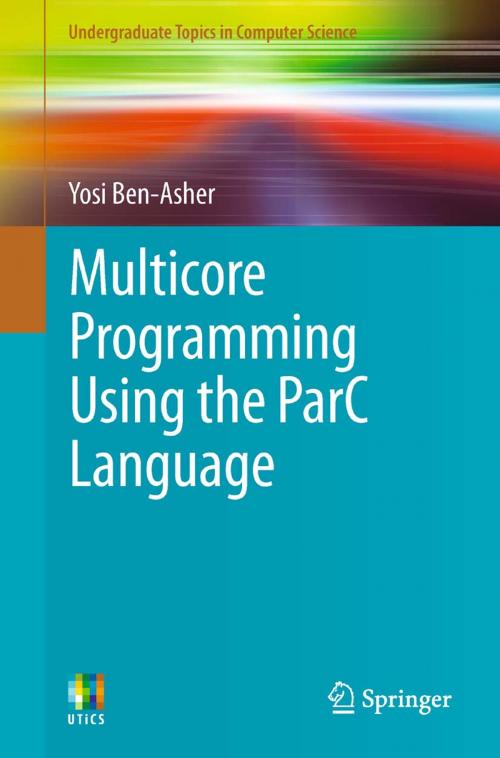Multicore Programming Using the ParC Language
Nonfiction, Computers, Advanced Computing, Engineering, Computer Architecture, General Computing, Programming| Author: | Yosi Ben-Asher | ISBN: | 9781447121640 |
| Publisher: | Springer London | Publication: | May 26, 2012 |
| Imprint: | Springer | Language: | English |
| Author: | Yosi Ben-Asher |
| ISBN: | 9781447121640 |
| Publisher: | Springer London |
| Publication: | May 26, 2012 |
| Imprint: | Springer |
| Language: | English |
Multicore Programming Using the ParC Language discusses the principles of practical parallel programming using shared memory on multicore machines. It uses a simple yet powerful parallel dialect of C called ParC as the basic programming language. Designed to be used in an introductory course in parallel programming and covering basic and advanced concepts of parallel programming via ParC examples, the book combines a mixture of research directions, covering issues in parallel operating systems, and compilation techniques relevant for shared memory and multicore machines.
Multicore Programming Using the ParC Language provides a firm basis for the ‘delicate art’ of creating efficient parallel programs. Students can exercise parallel programming using a simulation software, which is portable on PC/Unix multicore computers, to gain experience without requiring specialist hardware. Students can also help to cement their learning by completing the great many challenging and exciting exercises which accompany each chapter.
Multicore Programming Using the ParC Language discusses the principles of practical parallel programming using shared memory on multicore machines. It uses a simple yet powerful parallel dialect of C called ParC as the basic programming language. Designed to be used in an introductory course in parallel programming and covering basic and advanced concepts of parallel programming via ParC examples, the book combines a mixture of research directions, covering issues in parallel operating systems, and compilation techniques relevant for shared memory and multicore machines.
Multicore Programming Using the ParC Language provides a firm basis for the ‘delicate art’ of creating efficient parallel programs. Students can exercise parallel programming using a simulation software, which is portable on PC/Unix multicore computers, to gain experience without requiring specialist hardware. Students can also help to cement their learning by completing the great many challenging and exciting exercises which accompany each chapter.















